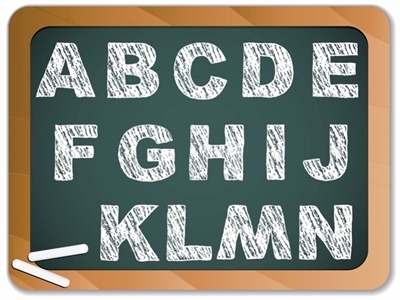READING, WRITING … AND ANALYTICS
Consider this the ultimate oxymoron.
More and more MBA students are going back to school – in writing. According to news reports, corporate employers complain that recent grads can’t present ideas, engage audiences, or summarize research implications succinctly.
 The culprit? Many people and trends could be blamed, from today’s heavy reliance on e-communications to light (or no) high school writing instruction. Test administrators even point to the increasing number of international exam applicants, for whom English might not be a first language.
The culprit? Many people and trends could be blamed, from today’s heavy reliance on e-communications to light (or no) high school writing instruction. Test administrators even point to the increasing number of international exam applicants, for whom English might not be a first language.
One instant remedy, it seems, is being shouldered by the b-schools. Some offer writing coaches, who help individual students and/or partner with professors to double-grade papers. Others have launched mandatory writing courses.
Other cures come from business. Consulting firms carefully supervise proposals penned by new hires. Quite a few financial institutions rigorously monitor client emails, ensuring that no comma is out of place.
Unfortunately, these are short-term solutions. Just because PowerPoint data have been reduced to essentials in one presentation doesn’t mean the next set of slides will be pithy and informative. Toggling between friendly texting and straightforward emailing might trip up a junior employee. And proposal writing, with its tendency to lean to the obfuscatory (!), definitely requires some serious educational time.
Where else to turn? Clearly, the U.S. educational system is under construction. So don’t expect immediate help there. Many undergrad and graduate deans are re-working the curricula, with help of faculty, to help students succeed. That, too, won’t happen yesterday.
Here are our two cents, especially relevant for we who transform the stunningly complex into the compellingly simple:
Many of us are regular volunteers, often as tutors or as mentors for different non-profits. All good. All worthwhile. So why not offer to train and coach business communications … at work? Sure, it adds to our responsibilities. It’s not necessarily part of our job description. Yet teaching colleagues how to use language and design to reach business goals can fulfill our desires to pay back while enhancing our employers’ bottom lines.
It’s the ultimate, no-arguments-accepted, reading and writing analytic.
 Tuesday, May 22, 2012 at 12:00PM | in
Tuesday, May 22, 2012 at 12:00PM | in  business communications
business communications 
Reader Comments (1)
I share your pain about the poor quality of writing. For as long as I have been an executive recruiter in communications and marketing, I have witnessed first-hand the downward spiral of the ability to communicate clearly and effectively. Ironically, there are more college programs with schools of communications out there than before.
I cringe when I see typos on resumes from candidates applying for jobs in PR or corporate communications.
As part of our internship training, I now mandate writing assignments and compulsory article reading and reporting. I hold my interns accountable for results. I'm in the trenches with them every day. Do you hold your students/staff and interns accountable?